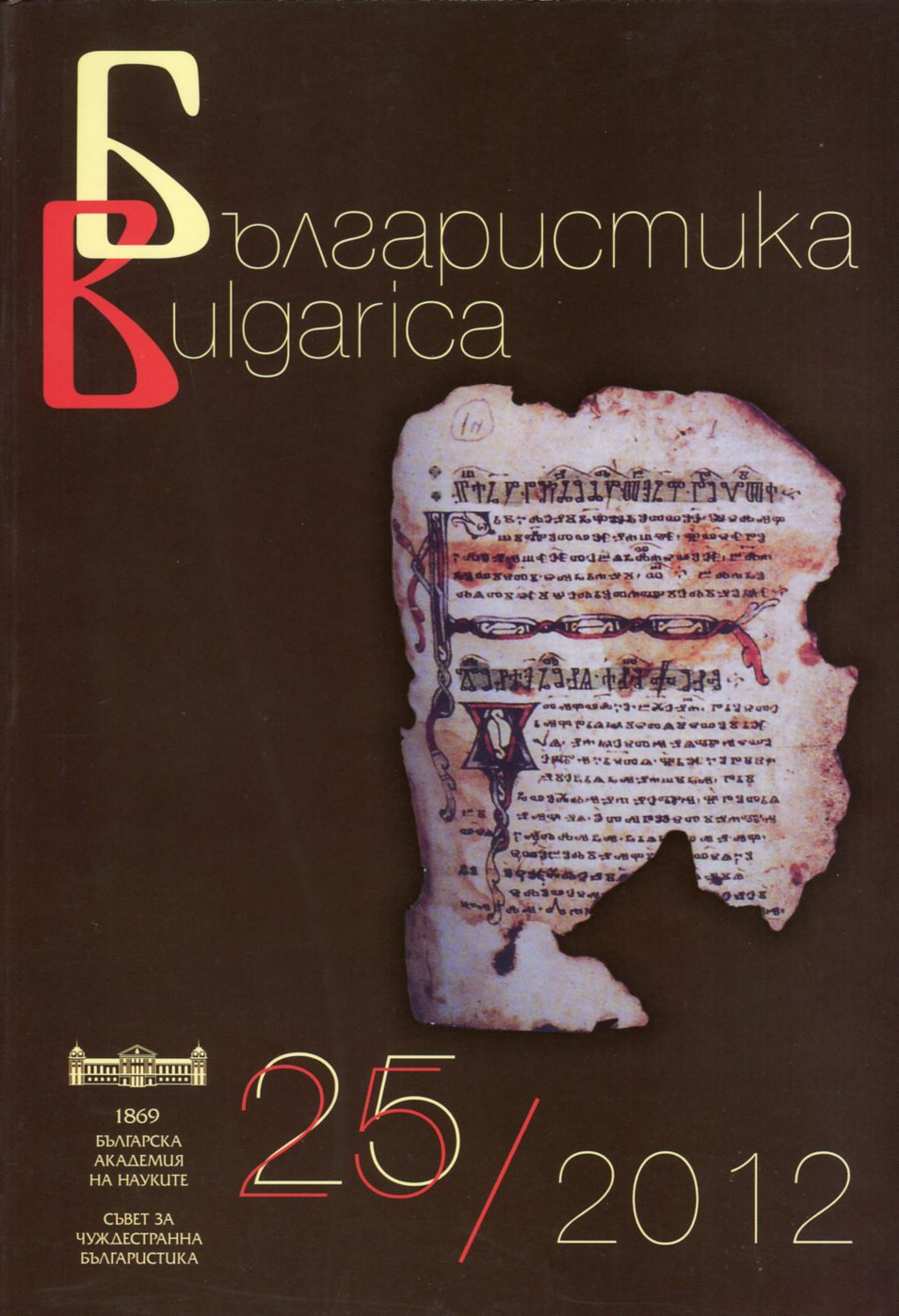
Книги 2012 г.
Selected bibliography in the field of Bulgarian Studies published in the current year
More...We kindly inform you that, as long as the subject affiliation of our 300.000+ articles is in progress, you might get unsufficient or no results on your third level or second level search. In this case, please broaden your search criteria.

Selected bibliography in the field of Bulgarian Studies published in the current year
More...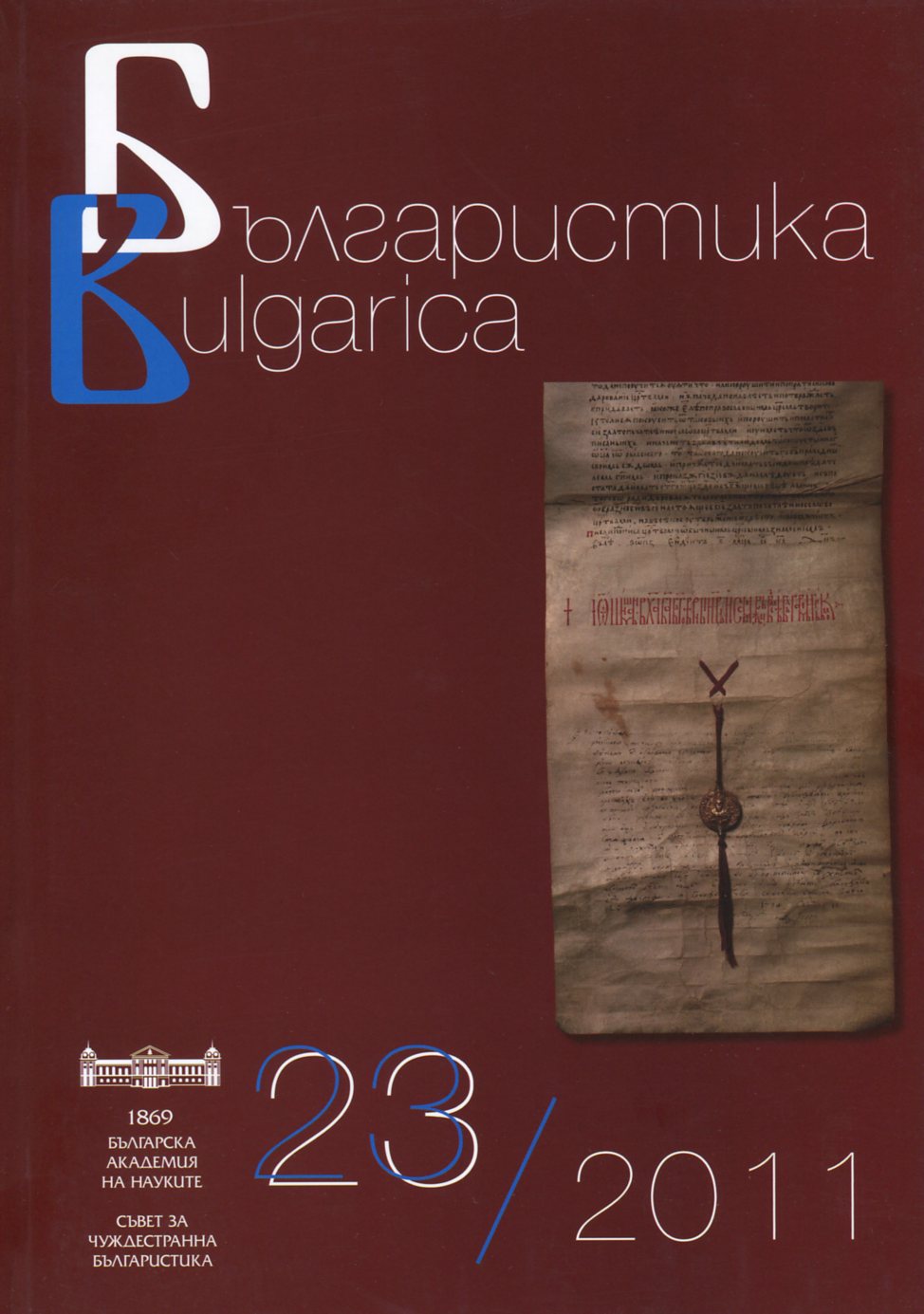
Defended PhD theses in Bulgaria in the field of linguistics, literature, history, folklore, ethnography and art studies
More...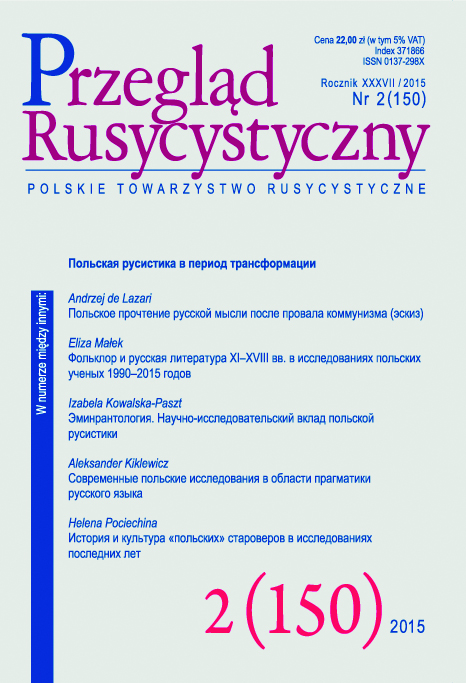
Based on the literary and cultural material, the article discusses two functions played by the term of emigrantology as a legacy of three waves of Russian emigration in the 20th century. The term was introduced by Lucjan Suchanek to the research space of Slavic emigration. It has systematized the area of intellectual and scientific self-reflection (including literary studies, historiography, philosophy and theology, and cultural studies), which developed in the community of Russian emigration. Additionally, the term provides modelling of the need for interdisciplinary and in the nearest future trans-disciplinary studies on the complex cultural phenomenon of Slavic emigrations. In this particular context, the article presents major research directions and achievements of Russian studies in Poland.
More...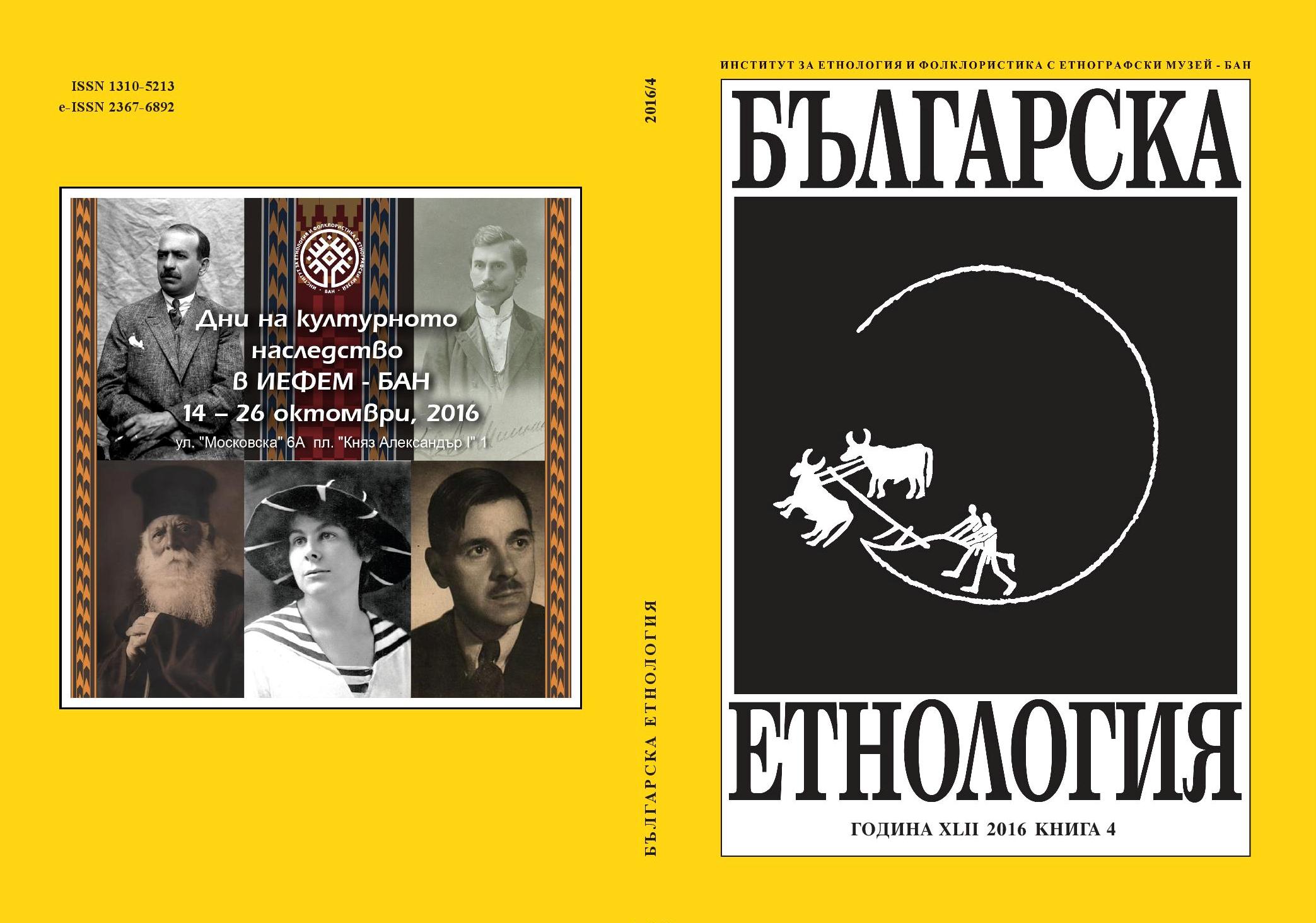
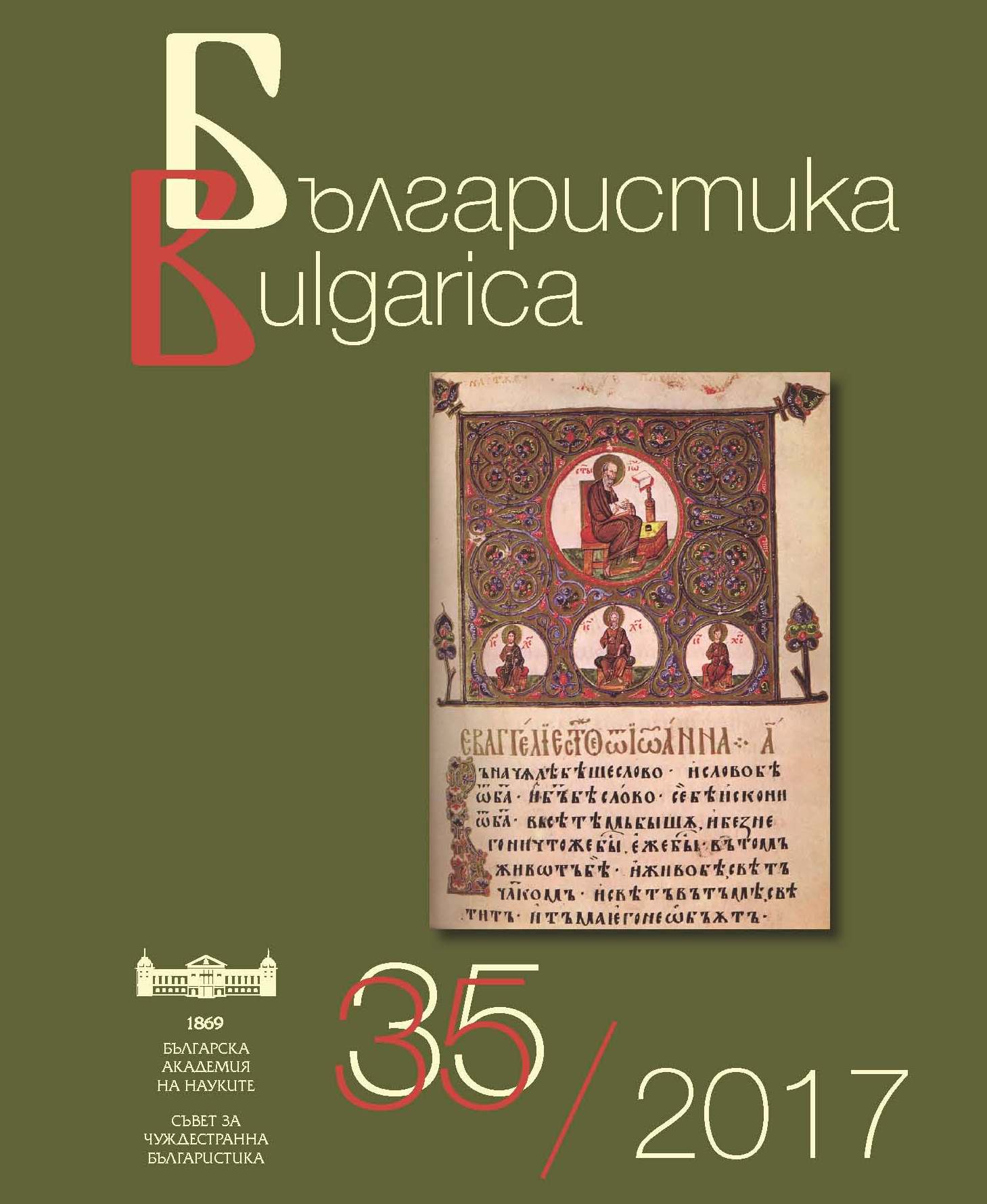
Content of the main Bulgarian scientific journals for the current year in linguistics, literature, history, folklore, ethnography, archaeology and art studies.
More...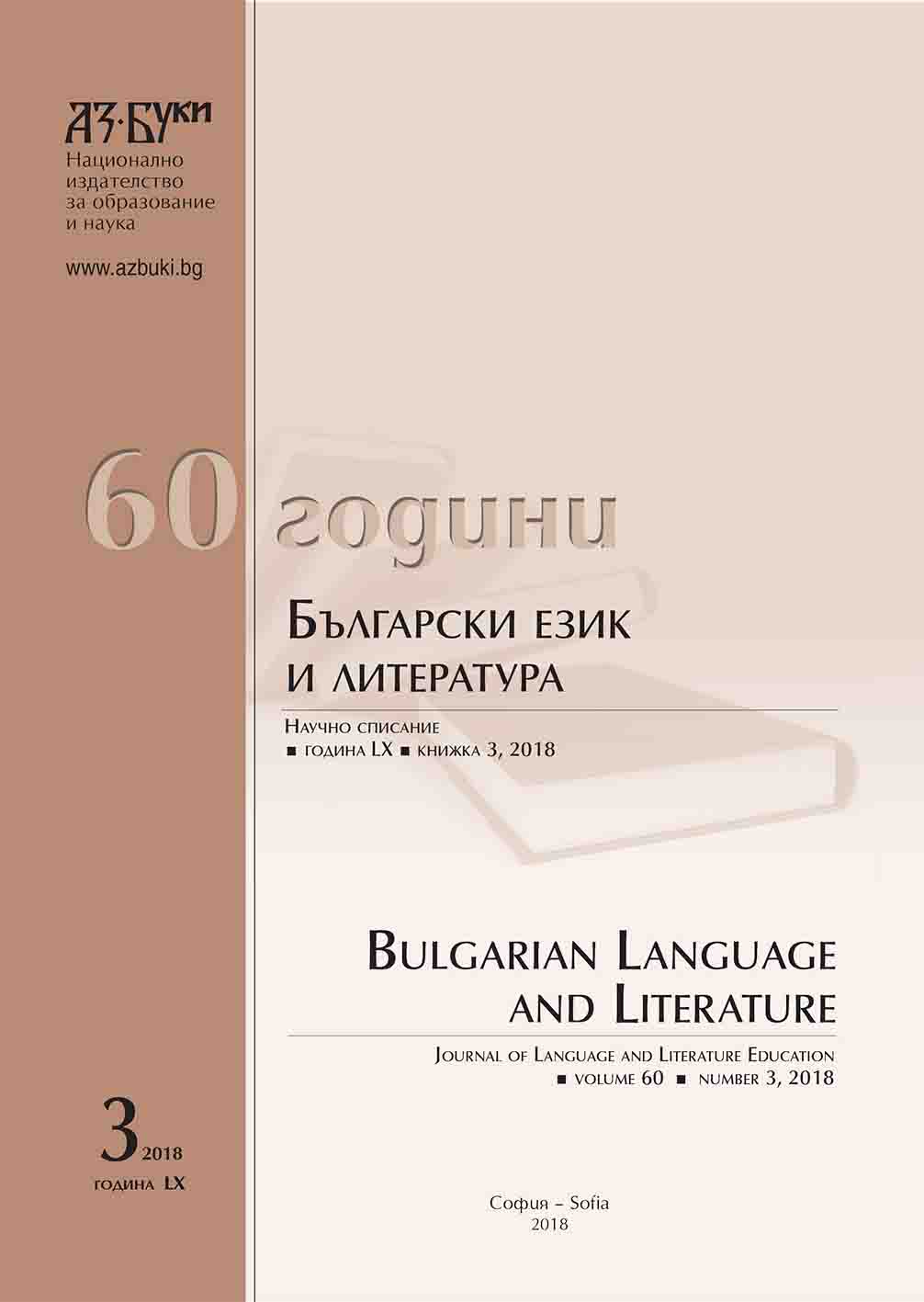
This article features on the experience of the teacher to change the perspective of teaching and studying the poetry of Vaptsarov – often stylistically marked with high rhetoric; even the most exalted phrases are referring to the internal flow of thoughts about the human being, his values, life, art, love and faith.
More...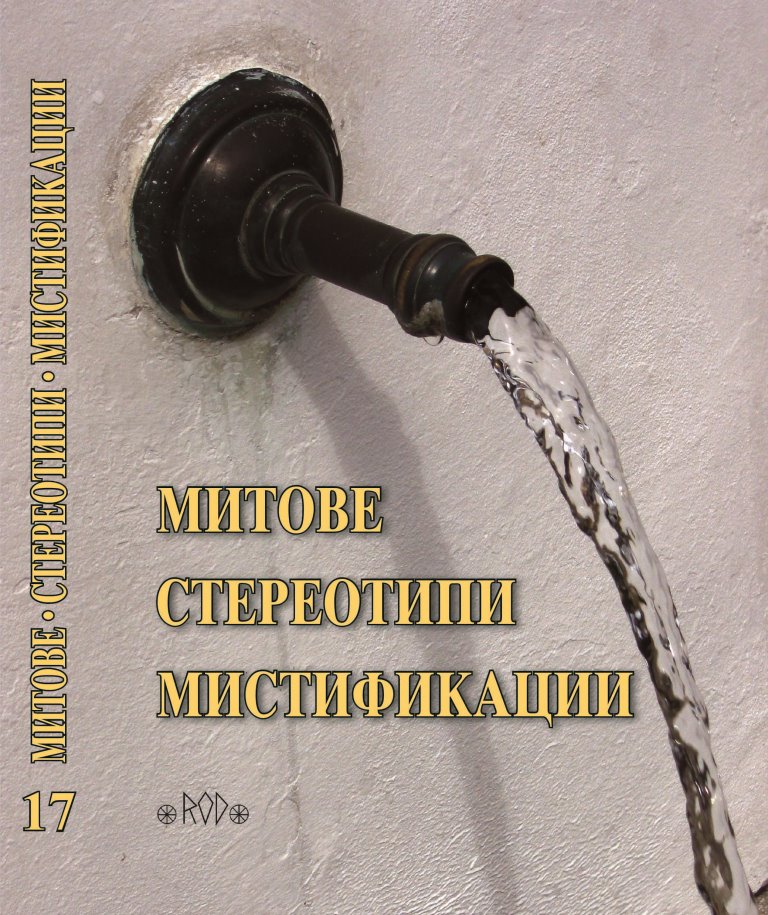
The paper analyses that vocabulary of certain medieval Bulgarian written monuments which is related to mythological notions and religious believes of the pagan antiquity. It is part of a series of studies on specific lexical-semantic groups of words in the history of the Bulgarian language, both united and differentiated on the basis of their subject-logical links in relation to reality, which have been done with a view to collect material for the Thematic Dictionary of the Medieval Bulgarian Language. Analysis is based on language data of the earliest written monuments – of the 10th to 14th centuries – which are reflected in the Palaeoslavonic lexicographic editions. The following thematic units are studied: names of pagan religious buildings and facilities, terms of pagan religious practices, names of persons involved in pagan practices, sacred words and names of mythical characters. The study reveals the existence of a large and detailed thematic union covering numerous word items related to pagan culture.
More...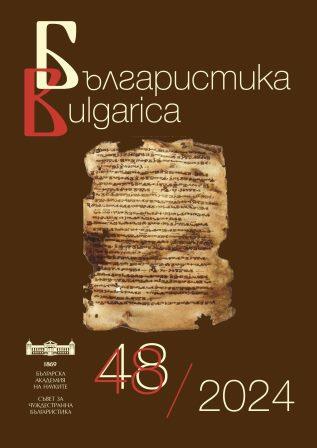





![За книгата: Румяна Л. Станчева. Сравнително литературознание. Фаталната жена и 5 европейски кройки на романа. София, Изд. Колибри, 2023. [Roumiana L. Stantcheva. Littérature comparée. La femme fatale et 5 coupes européennes du roman]](/api/image/getissuecoverimage?id=picture_2024_82646.jpg)
Book review: Румяна Л. Станчева. Сравнително литературознание. Фаталната жена и 5 европейски кройки на романа. София, Изд. Колибри, 2023. [Roumiana L. Stantcheva. Comparative Literature. The Femme Fatale and 5 European “Cuts” of the Novel. Sofia, Colibri Publishers, 2023./ Littérature comparée. La femme fatale et 5 coupes européennes du roman.]
More...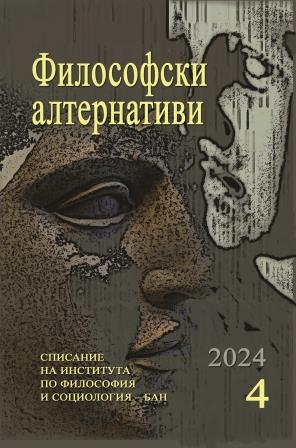
The article examines the dual nature of the fantastic and the magical in the fairy-tale world of Nikolay Raynov. On the one hand, it thrives in a universe completely different from reality. But, on the other hand, it is not a refusal to accept the human situation but rather a way to enrich this situation. The human is situated on the horizon of an ethical imperative that predetermines the fate of the characters. It stands to reason that authorization is a step from magical to fantastical. Parallels have been sought both with Propp's morphology and with Bettelheim's psychoanalytic optics. The existential choice of the heroes turns them into warriors of light and bearers of light, which, as a manifestation of the divine in man, is a key concept in the philosophical, theosophical, and artistic works of the prominent Bulgarian classic.
More...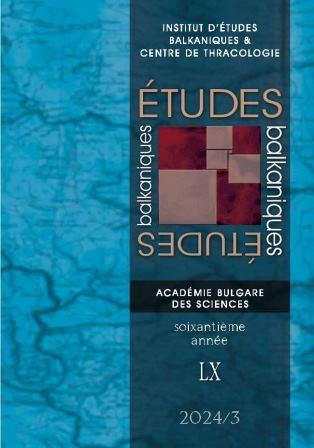
The article examines Vesna Parun’s journey to Bulgaria as a mental construction, whose optical framework is the meeting ground of the dialogue about borders and identities, about surmounting time and space, about the physical and its metaphysical dimension, about escape and return. Immersed in the waters of the “inner self”, the author focuses on suggestion in order to invigorate intuition and unravel the essence of her own existence. The brainchild of her deep self-reflection and philosophical insights, her contact with Bulgarian topoi, artists, historical and cultural realities is presented as an ontological route that is a rationale for creative inspiration and a condition for spiritual resurrection.
More...
In Croatian literature, there is a long tradition of travelogues from South Slavic countries. In this work, three travelogues of Vesna Parun, the great Croatian poet of the 20th century, are interpreted. Vesna Parun lived in Bulgaria for several years in the 1960s. In her book of essays, travelogues and feuilletons, Nedovršeni mozaik (1990), three Bulgarian travelogues were published: “More bez sunčevih zalazaka”, “Djevojčica i vjetar” and “Probuđeni bakrorez”.
More...
During her stay in Bulgaria in the 1960s, Vesna Parun formed strong friendships with leading figures on the Bulgarian literary scene, and Bulgaria became a kind of second homeland for her. Here she wrote her poetry collection The Wind of Thrace, which not only testified to her enchantment with Bulgarian nature, culture, and history but also served as an important document for the development of her poetic views. Through the Thracian myth and Bogomilism, through the images of Sozopol, Nessebar, and the Hermit of Rila, as well as through the irony and anti-dogmatism in the Sofia poetic and philosophical circles, Vesna Parun began to infuse the image of Bulgaria in her poetry with strong nostalgic sentiments. In this way she traced mental bridges between her native home and language and her new Bulgarian homeland, which could not be completely destroyed even after the suppression of the Prague Spring in 1968 and her expulsion from Bulgaria. Vesna Parun is a known and valued poet in Bulgaria, and her work has not lost its impactful influence.
More...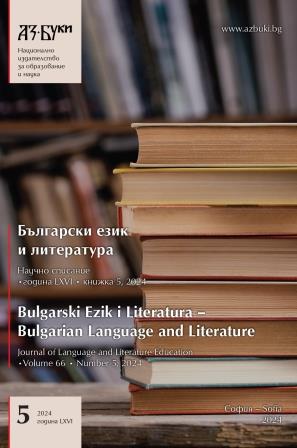
This article is dedicated to the specificity of messages in texts from the Bulgarian National Revival period. The aim is to trace the complex relationship between content and speech in Revival texts. The paper presents current reflections related to the beginnings of the modern Bulgarian literary language, supporting a scientific hypothesis that has gained popularity in recent years. This hypothesis posits that the periodization of the modern Bulgarian literary language cannot be understood through the simple relationship of „from - to“ but must be entirely aligned with the dynamics of linguistic processes in their complex competition. At this stage, the idea of unfolding the reality of Revival texts through the lens of the relationship between the center and the periphery is proposed, with the emphasis being that, in view of the linguistic picture of the world, the boundaries between the two are not as clearly defined and tend to blur.
More...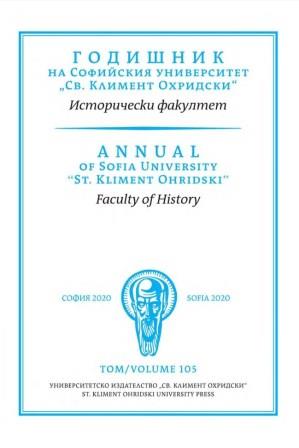
Литературната дейност, която се развива в рамките на Охридската архиепископия през периода от нейното възникване в началото на XI в. до времето, когато Димитър Хоматиан заема архиепископския престол в Охрид (началото на XIII в.), е разнообразна и богата Важно място в нея заемат въпросите, свързани с делото на светите братя Кирил и Методий и пренасянето на това дело в България по времето на княз Борис I. Това се дължи на факта, че тези въпроси са били използвани от охридските архиепископи за отстояване на независимия статут на архиепископията по отношение на Константинополската патриаршия. От най-съществено значение за проследяване на кирило-методиевската тема в съчиненията на висшия църковен клир, оглавявал архиепископията през разглеждания период, са следните извори: Климент Охридски, известно още като Дългото житие на Климент, написано от архиепископ Теофилакт през XI в.; 2) Запазеният списък на охридските архиепископи, съставен в средата на XII в. по времето на архиепископ Йоан Комнин (т.нар. Дюканжов списък); и 3) Краткото житие на свети Климент Охридски, написано през XIII в. от архиепископ Димитрий Хоматиан.
More...